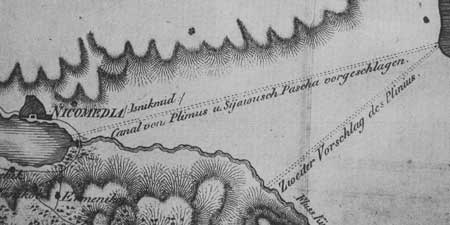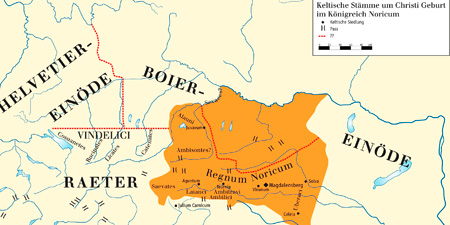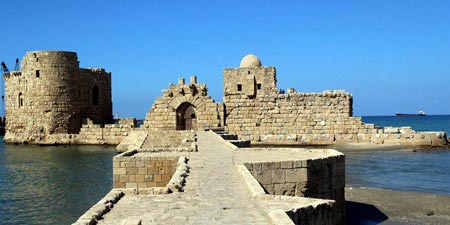Mithridates VI - powerful king of Pontus
- Written by Portal Editor
- Category: Antiquity
- Hits: 3547

Mithridates (132 BC - 63 BC), known as Eupator Dionysus, went down in history as one of the great opponents of the Romans' attempts at expansion.
"Because history is not" exact science "- it is a humanistic discipline. Its main subject is people, and, as Thucydides said a long time ago, history is not about studying circumstances, but about people in circumstances. Anyone who forgets that because he is in love with his own special area of interest or is fascinated by the model-building activities and ideal types of behaviourists can only be described as simple-minded.”
- Gordon A. Craig, 1981 in Münster / Westphalia

Mithridates (132 BC - 63 BC), known as Eupator Dionysus, went down in history as one of the great opponents of the Romans' attempts at expansion.

“50 kilometers long, 150 meters wide and 25 meters deep - the project planned by the former Turkish Prime Minister Erdogan, who is now president, is gigantic.

We had walked back from Heidentor along Heidentorgasse to the centre of Petronell-Carnuntum, then followed the signs to the military camp on the main road.

After an extensive tour through the amphitheatre and the gladiator school outside the civilian city of Carnuntum, we made our way to the Heidenor.

After we had thoroughly inspected the amphitheatre during our tour, we noticed a wooden structure in the immediate vicinity that had also sparked our interest: the so-called gladiator school.

Next to the Roman military camp of Carnuntum, which was located directly on the banks of the Danube on the Pannonian Limes, the civilian city of Carnuntum developed in quick steps in addition to the military camp until it became the administrative centre of the Roman province of Pannonia at the beginning of the 2nd century AD.

When you think about the Roman era and then use the term “games”, almost everyone who has dealt with the Roman era thinks of the gladiatorial fights in arenas such as Avenches in Switzerland, of chariot races in stadiums like that of Afrodisias or theater performances like in the imposing theater of Aspendos.

At first, it was just a poster on the banks of the Traun, which drew our attention to the Roman past of the modern town of Wels.

At latest with the finding of the map Tabula Peutingeriana many locations along the Roman roads are to be assigned to today's cities.

In many countries of our world the owl is considered as a bird of wisdom and it was same in ancient Athens already, where the little owl was considered a symbol of wisdom too.

Although the saying, "Everything flows ..." was later attributed to the Greek philosopher Heraclitus of Ephesus as a result of his philosophies, this approval has survived until today.

The area at the mouth of the river Sava into the Danube, now place of the Serbian capital Belgrade, has been continuously inhabited since the middle of the Palaeolithic period.

The technical and organizational concerns in the Roman building technique during the Roman Empire are also based on Hellenistic values. In his work De architectura libri decem (22 BC) the Roman officer Vitruvius describes the techniques and mathematical foundations adopted from the Greeks.

From the Celtic kingdom, under the leadership of the Noric tribe, a Roman province of the same name had emerged, which was assigned to the Roman Empire with its capital Virunum (now Zollfeld near Maria Saal).

Noricum was once a Celtic kingdom under the leadership of the Noric tribe on a large part of the territory of present-day Austria as well as adjacent regions of Bavaria (east of the Inn) and Slovenia, which later became a province of the Roman Empire under the designation Provincia Noricum.

Always people tried to work in the field of medical treatment to help others when injured or helpless. Some big steps could be done in Greek and Roman period because of development in research and for the first time experiences were written down.

Involvement of human beings with water goes back to earliest days of history. In the prehistoric ages, prior to the transition from nomadic existence to forming permanent settlements, water usage was partially a part of nature that could not be controlled.

As a part of our project development "A journey of Intimacy and Culture along the Roman Roads" to create a concept for modern Camper routes to the south our route direction inevitably leads over the Alps.

Whenever the word "Crusades" is used in the modern 21st century, whether in the media or by high-ranking political leaders, it always has great political significance and a profound impact on human interaction, even though the actual namesakes of the "Crusades" date back more than 800 years.

Long before the First Crusade, merchants from Amalfi had founded a pilgrim hospital in Jerusalem, knowing full well that pilgrims to the holy cities represent an important economic factor (which is still true today),